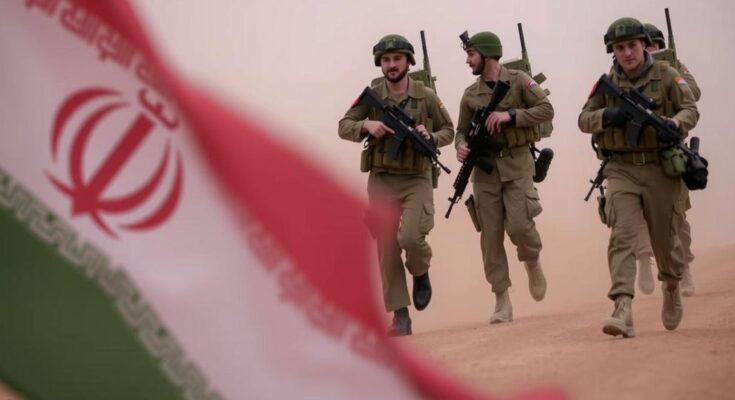Iran’s Supreme Leader, Ali Khamenei, labeled the U.S. military presence in Iraq as “illegal,” urging resistance against occupation. Iraqi Prime Minister Mohammed Shia’ Al Sudani met with Iranian leaders to enhance bilateral relations and support regional integrity amidst the ongoing Syria crisis.
On Wednesday, Iran’s Supreme Leader, Ali Khamenei, asserted that the United States military presence in Iraq is deemed “illegal,” calling upon the Iraqi nation to oppose what he characterized as U.S. occupation. He elaborated on recent developments in the Middle East, particularly highlighting the influence of external forces in the crisis in Syria. Meanwhile, the Iraqi Prime Minister, Mohammed Shia’ Al Sudani, expressed optimism that his recent discussions in Tehran would bolster relations between Iran and Iraq.
Prime Minister Sudani condemned Israel’s military actions against Gaza and Lebanon and reaffirmed his nation’s commitment to supporting these regions. He articulated Iraq’s stance of backing the will of the Syrian people and emphasized the importance of maintaining Syria’s sovereignty and territorial integrity while advocating for the establishment of an inclusive governmental framework. Sudani’s visit to Tehran, which included meetings with President Masoud Pezeshkian and Parliamentary Speaker Mohammad Baqer Qalibaf, focused on enhancing bilateral ties and addressing regional and international matters of mutual concern.
The discussion surrounding the legality of the U.S. military presence in Iraq stems from broader regional tensions, particularly involving U.S. military actions and the geopolitical implications in the Middle East. Iran has consistently criticized U.S. involvement in the region as an occupation, promoting a narrative of resistance among its allies. Concurrently, Iraq is navigating its diplomatic relations with both Iran and the United States, attempting to establish solid alliances while advocating for its sovereignty and territorial integrity. The ongoing civil conflict in Syria further complicates regional dynamics, showcasing the impactful roles of foreign intervention.
In summary, Supreme Leader Ali Khamenei’s remarks on the U.S. military presence in Iraq underscore ongoing tensions and calls for resistance against foreign occupations. Concurrently, Prime Minister Mohammed Shia’ Al Sudani aims to strengthen Iraq’s relationships with Iran and address pressing regional issues, reaffirming Iraq’s support for its neighbors amidst conflict. The discussions signal an ongoing commitment to national sovereignty and collaborative regional stability.
Original Source: news.az



